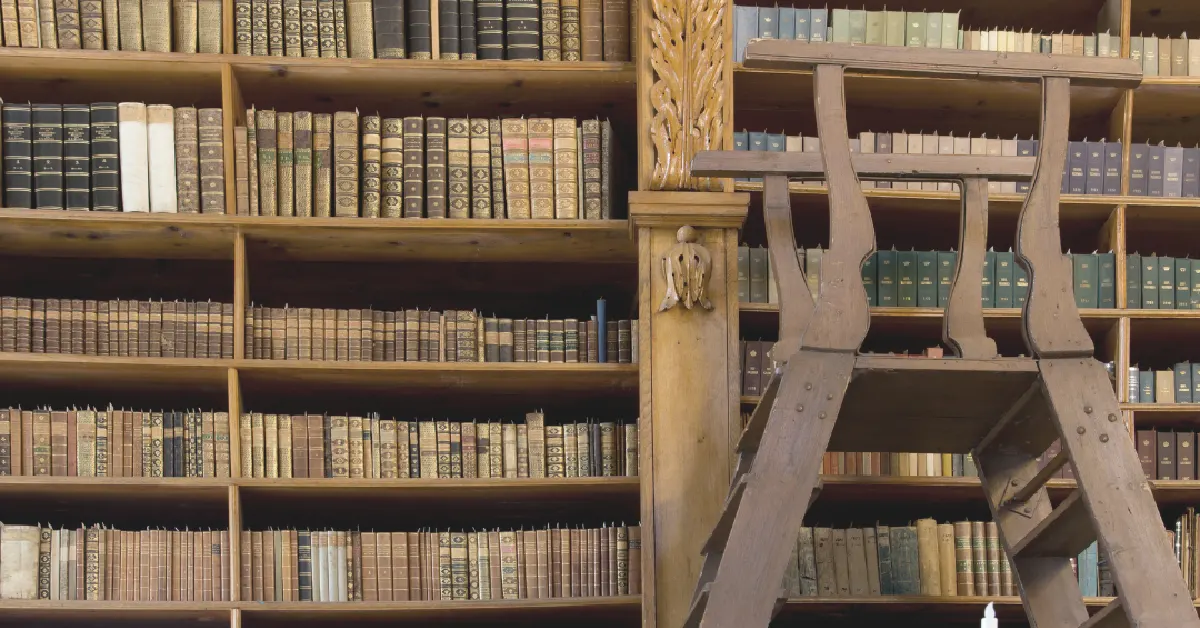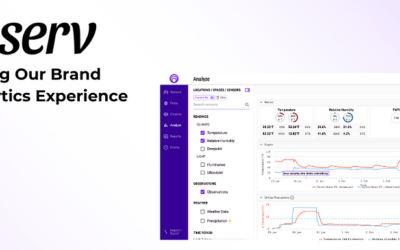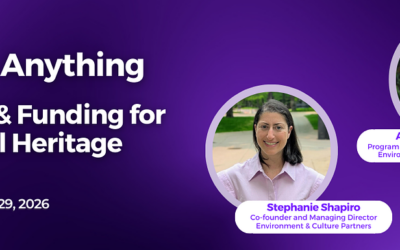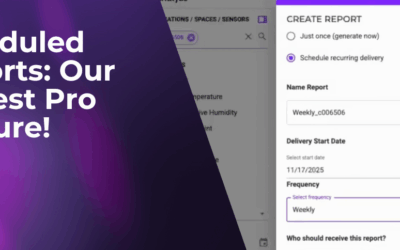With increasing awareness of the value of heritage assets, the role of preventive conservation education has never been more significant. As a collections care professional, you understand the importance of preserving and maintaining valuable collections. However, there is so much you might feel you need to know about! There are ten agents of deterioration, after all, and each one of them can feel so extensive that you’d need to become a specialist to feel comfortable making the decisions you need to make to keep your collections safe.
Naturally, it would not be realistic for anyone to expect you to be a specialist in each of the agents. At Conserv, we don’t believe you have to be. That’s why you have colleagues and professional organizations to help you update your knowledge.
This post delves into 13 essential resources that can further enhance your knowledge and skills in preventive conservation. When in doubt, it will be extremely useful to know where to go looking for information you can trust. These resources range from academic courses to professional associations, all contributing to the global discourse on preventive conservation education. In no particular order, here we go!
1. The Getty Conservation Institute
The Getty Conservation Institute provides an extensive array of resources for preventive conservation education. Online publications, research papers, and project reports offer comprehensive insights into various aspects of collections care. With a focus on applied research and education, the Getty Conservation Institute is a treasure trove of knowledge for conservation professionals. Keep an eye out for open applications for workshops, fellowships and internships if you are interested in a more involved educational resource.
2. ICCROM Courses
The International Centre for the Study of the Preservation and Restoration of Cultural Property (ICCROM) offers specialized publications and courses in preventive conservation. Their interactive, hands-on approach equips professionals with practical skills and an in-depth understanding of the latest preventive conservation techniques. They have a Resource of the Month page where they highlight different cases of preservation around the world. You can keep an eye on their free upcoming Zoom lectures or try to find in person courses related to updating your preventive conservation education. They even have Masters degrees in some countries!
3. Museum Study, LLC
Museum Study, LLC is a private enterprise that delivers online training courses in preventive conservation, providing flexibility for busy professionals. Their curriculum covers various topics such as environmental monitoring, risk management, and collections storage. The courses are instructed by experienced professionals in the field, ensuring a high-quality learning experience. Although these courses are not free, you can probably use your professional development budget or any other grants available to update your knowledge on preventive conservation.
4. American Institute for Conservation (AIC)
The American Institute for Conservation (AIC) has a wealth of resources available, including online courses, webinars, guidelines for collections care, and publications. Their resources are designed to enhance professional standards in preventive conservation education, making it a must-visit for collections care professionals. In particular, don’t miss their Conservation Wiki for preventive care, which includes information compiled by the Collection Care Network (now called Preventive Care Network) members.
5. Northeast Document Conservation Center (NEDCC)
The Northeast Document Conservation Center (NEDCC) website includes preservation resources like a digital preservation manual, emergency preparedness handbook, guidance on safeguarding collections from natural disasters, basic care for various media, and control of pests and mold. As a well-established conservation center, they offer training programs around the USA with the possibility of organizing multi-day in-person workshops that can be customized to your own specific needs and staff training requirements.
6. Canadian Conservation Institute (CCI)
We can’t have a list of preventive conservation education resources without The Canadian Conservation Institute (CCI) offers extensive resources, including guides, learning opportunities, and services for preventive conservation education. The CCI’s commitment to promoting best practices in the care of collections is evident in their high-quality resources and constant updating. Their conservation staff is continuously researching and producing interesting, innovative solutions to old problems, so you will never be amiss if you make sure to visit their website every few months for the latest information.
If you are more interested in video content rather than reading extensive documentation, don’t forget the CCI (as well as many of the already mentioned resources) has a YouTube channel! Feel free to update your knowledge through whatever format you prefer.
7. The British Museum
Although it is not in the main menu at the top of their website, The British Museum shares their current research projects and digital publication through a link in the site map at the bottom. For example, check out this project on protecting collections from vibration during transport and this other one on visitor and audience evaluation.
The BM website also has departmental links such as the Collection Care section which includes Collection Management, Conservation, Photography and Imaging, and Scientific Research. They have contact emails and the names of the different members of the teams, so don’t be afraid to reach out with any questions regarding their preventive care strategies and projects!
Similarly, if there are other museums whose work you are interested in, always look through their websites to find contact information and projects. You’d be surprised how easy it is to get access to the top researchers in conservation and collections care.
8. The Smithsonian Museum Conservation Institute
While you may not find courses and webinars here, The Smithsonian Museum Conservation Institute still offers a wide variety of resources, from internships to research publications that include downloadable articles, as well as information on book chapters and whole books that they have helped write. In particular, check out the Smithsonian Contributions to Museum Conservation Series for symposium and workshop proceedings which you can mine for excellent information on preventive conservation and risk mitigation
9. Conservation OnLine (CoOL)
This list would not be complete without mentioning Conservation OnLine (CoOL). CoOL is a free resource supported by the Foundation for Advancement in Conservation. It offers a wealth of information on conservation of cultural property. Its extensive library contains resources on a wide variety of topics, making it an extremely useful tool for collections care professionals.
It also includes the archive of the famous Conservation DistList which migrated to the Global Conservation Forum (GCF) in 2019. One of our favorite things about the DistList (and GCF) archives is that it documents real conversations between preservation professionals around the world asking day-to-day questions about collections care and sharing resources, events, and personal experiences.
10. The Australian Institute for the Conservation of Cultural Material (AICCM)
The AICCM provides excellent resources in the form of publications, events, webinars, and guidelines to help you update your preventive conservation education. They include updated environmental guidelines for cultural institutions that take into account sustainability and energy use. They even have a section for resources specific to disaster preparedness and response. The AICCM Conference proceedings going back to 1976 are also available for free PDF download, so if you want to see how conversations and topics evolved over time, this is the perfect place to find primary resources.
11. The Institute of Conservation (Icon)
UK-based Icon provides resources for preventive conservation education, including courses, academic publications, and theme-based groups and networks for members. While you do need to be a member to join the specific groups, access to the resources is open to all. One of our favorite resources on the Icon website is the Filming in Historic Houses factsheet, written by Claire Fry ACR, from Spencer & Fry Ltd., a private conservator-founded company based in the UK which specializes in protecting historical locations during filming for movies and tv dramas (among others).
12. The National Park Service (NPS)
The National Park Service’s Museum Handbook provides a very complete “reference guide on how to manage, preserve, document, access and use museum collections.” It has three parts which cover all kinds of useful topics to update your preventive conservation knowledge such as emergency planning, handling and shipping, integrated pest management, security, storage, and material-specific recommendations. In case any of your responsibilities include documentation or registration, there are also sections on these topics as well as recommendations for legal issues and use of the collection for public and commercial purposes.
13. The International Council of Museums (ICOM)
If you work in heritage, you have probably heard of the International Council of Museums (ICOM). Did you know they have a section on their website for international training and exchange programmes? Once again, make sure you check out their YouTube channel for past webinar recordings on a variety of topics, including preventative conservation. Another excellent resource by ICOM is the manual called Running a Museum: A Practical Handbook which contains a section on preventive conservation.
Conclusion
Preventive conservation education does not need to be a full-time or expensive endeavor. We hope that the above resources will help you find the information you need when you need it and in the format that suits your learning style best. Remember that you don’t need to know everything about everything all the time and that it’s perfectly acceptable to use your resources to update your knowledge at your own pace. And don’t forget that the Conserv Community is full of collections care professionals asking questions and sharing solutions every day, so don’t feel embarrassed to post in the forum and see who can help you out!
If you have any questions about environmental monitoring, integrated pest management, or just want to talk about preventative conservation, please reach out to us! Don’t forget to check out our blog or join our community of collections care professionals where you can discuss hot topics, connect with your peers or even take a course to get familiar with the Conserv platform.





